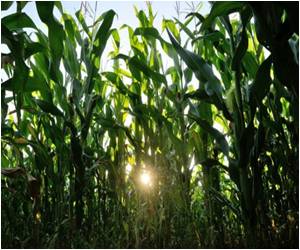High salt in soil threatens to reduce the growth and yield of crops. In a breakthrough discovery, researchers have now identified a protein family that may help plants grow under slat stress. The researchers revealed that a previously unknown family of proteins named 'Companions of Cellulose synthase' (CC) supports the cellulose production machinery under salt stress conditions.
Lead researcher Staffan Persson, professor at University of Melbourne, Australia, said, "More and more of the world's crops are facing salt stress with high salt in soils (also known as salinity) affecting 20% of the total, and 33% of irrigated, agricultural lands worldwide. By 2050 it is estimated that we need to increase our production of food by 70% to feed an additional 2.3 billion people. Salinity is a major limiting factor for this goal as more than 50% of the arable land may be salt afflicted by the year 2050. It is therefore of great agricultural importance to find genes and mechanisms that can improve plant growth under such conditions. We show that these proteins, which we called CC proteins, are part of the cellulose synthase complex during cellulose synthesis."
For the study, researchers discovered that the CC gene activity was increased when plants were exposed to high salt concentrations. Thus, the researchers hypothesized an involvement of these proteins in salt tolerance of plants. A co-author of the study said, "To prove this hypothesis we deleted multiple genes of the CC gene family in the model plant Arabidopsis thaliana (thale cress), and grew the plants on salt-containing media. These mutated plants performed much worse than the wild-type plants."
The study was published in
Cell.Source-IANS
















